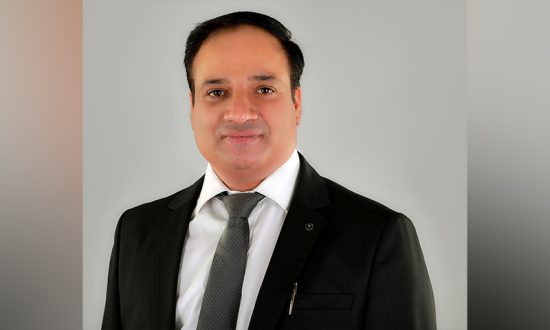Manoj Yadav holds experience of over 14 years in the field of Law. He is the founder of Legal-N-Tax Advisory LLP and also Taxadvocateindia.com, New Delhi, India. He has vital experience in the field of Corporate Law, Taxation Law, Society Law, India Entry Strategies and Intellectual Property Rights. He started his career as a litigation lawyer and has represented various clients – individual and corporate bodies, before the various authorities. He has handled all kinds of litigation. During his initial years of practice, he worked as a Senior Consultant/ Senior Associate with a number of reputed Advisory and Consultancy Firms. He rendered his services as a litigator by representing the said firm’s clients before various regulatory authorities. Initially, he used to work towards VAT (Value Added Tax) and now, GST (Goods and Service Tax) and Income Tax. He suggests to the GST consultants that the future depends upon the quality of services provided by one. He claims that a professional who is ready to provide his clients with possibly the fastest and accurate consultancy will succeed in future.
India is a developing country having vast reserves of natural resources and human resources. This rare combination serves as a perfect mix for a business person who wants to grow a business. This is why the whole world sees India as an ideal place for business in the present times. But before starting a business in India, a non-resident person has to fulfil certain mandatory compliances, such as defining the business plan, completing documents, and applying to the relevant authorities.
In 2017 the Indian indirect taxation system was utterly changed, and GST came into existence. By introducing GST, the Government has eased indirect taxation system and removed a lot of difficulties in the erstwhile tax regime. One of the major change was to subsume various types of taxes and duties like Excise duty, Service tax, VAT etc. into one tax system called GST. One of the motive behind revamping Indirect tax system in the country was to bring more and more taxpayers under the Indirect tax umbrella. Even non-residents and foreign companies were left no exception. Today we are discussing GST Registration and Compliance for Foreigners and non-residents, along with the mandatory process and documents for GST:
A non-resident taxpayer has to apply for GST registration in Form-GST REG-09 under section 24 of Central Goods and Services Tax Act, 2017 within 5 days of commencement of business but cannot opt for the Composition dealer scheme.
The mandatory documents for this process are;
- Proof of Identity (passport with visa details)
- Principal Place of business
- Company’s certificate of incorporation (registered from a country company)
- Issuance of license by foreign country
- A clearance certificate issued by the Government of India.
- bank account proof
- and an authorized representative in India with a valid PAN holder on behalf of the foreign company or individual.
- In addition, a non-resident taxable person has to submit a tax identification number or unique number based on which the entity is identified by the country’s government.
These are the necessary documents for non-resident taxable persons to register with Goods and Service Tax. The application forms are available on the official website of GST; they can quickly fill them for themselves or take help and guidance from a professional.
After filling Form GST-REG-09, Application Reference Number (ARN) will be generated. With this ARN, the assessee must pay the requisite equivalent tax liability in advance for the validity period.
Benefits of the GST registration for Foreigners:
- Non-Resident Taxable Person has an organized and defined tax liability.
- Number of Compliances are lesser than in India’s old indirect taxation system.
- An easy and simple online procedure.
- Improve the efficiency of Business Areas.
However foreign businesses make mistakes by neglecting mandatory tax compliances despite the fact that the procedures are so easy and convenient that a small professional/expert’s consultancy may work for them doing all the compliances which ultimately benefit smooth running of their businesses.
So all foreign businessmen should take complete care of the fact that it is easy to do business in India, but it is equally important to complete all the compliances on time. If they take complete care of everything, then no one can stop their business from growing. Whereas strict provisions have to be met for starting a business in a western country, now all the procedures related to trade in India have been made very easy and straightforward.


